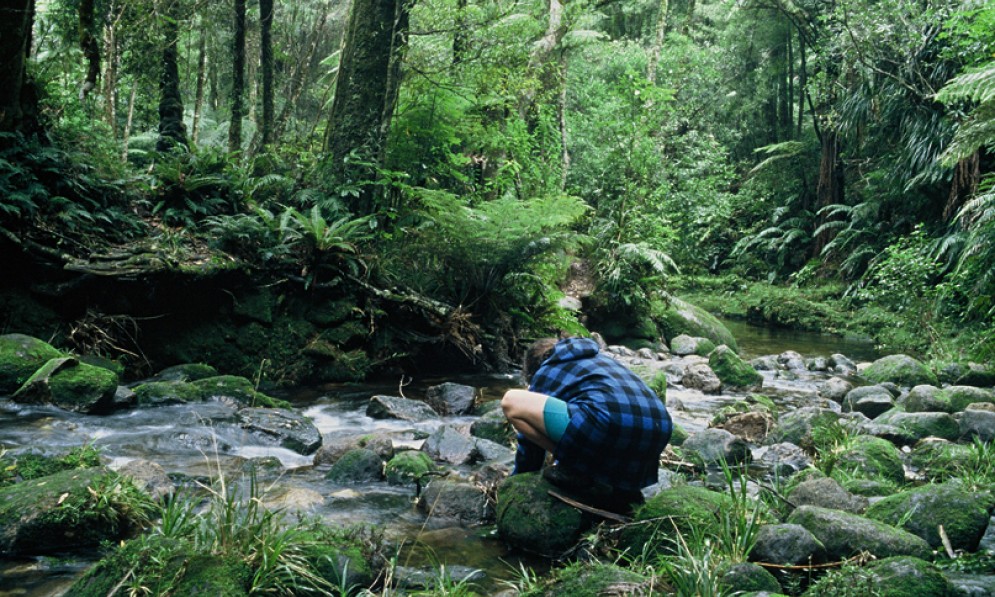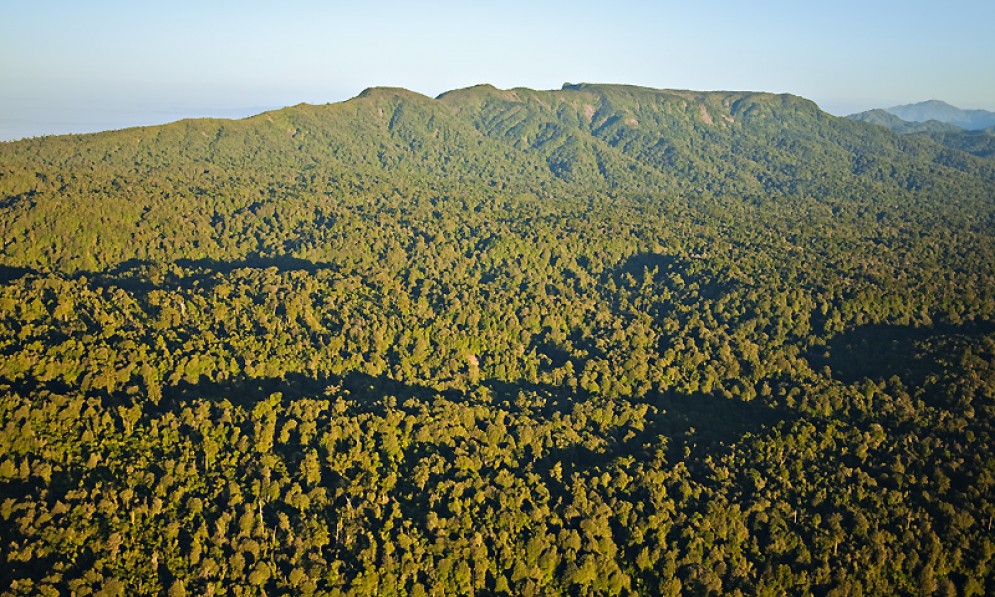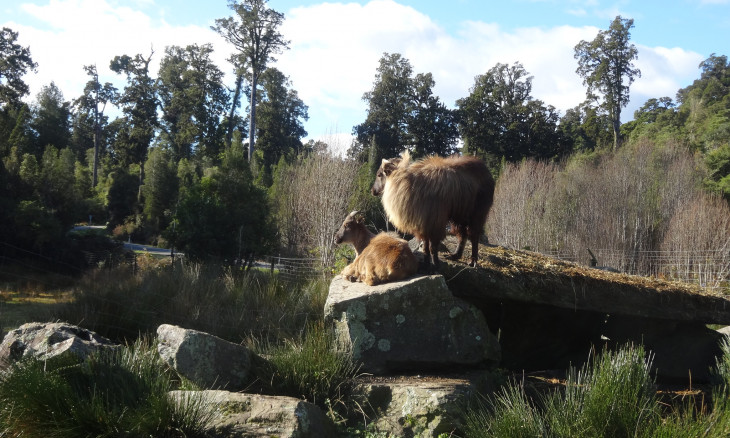This volunteer group manages 500 hectares of native forest in the Kaimai Mamaku Conservation Park, between Tauranga and Katikati.
The project was set up in 2006 by Tauranga Forest and Bird and the Katikati Rotary Club and is supported by local volunteers, landowners and Ngai Tamawhariua who have the Kaitiaki (guardianship) role over this forest.

Aongatete Stream
The aim of the project is to restore the wildlife and plant life to a part of the Kaimai Mamaku Forest Park.
To achieve this, volunteers are doing pest control which involves poisoning ship rats and possums. Ship rats eat native lizards and invertebrates and raid bird nests for eggs.
These rats are prey for stoats and feral cats, so they attract additional pest animals to forest.
Possum are also a problem in the Aongatete forest - they raid bird nests and strip the forest of much of its foliage.
Indeed, they have eaten so much vegetation that their favourite plants are now gone or going: tree fuchsia and broadleaf are gone, raukaua, tree rata and kamahi are dead or dying , and kohekohe is under attack.
With all these holes in the forest canopy, wind is knocking over the tall tawa trees. As new seedlings and saplings grow deer mow the forest floor clean.
Trapped rat, Aongatete Forest
However pest control is already making a difference. Numbers of birds are increasing, and the volume of insects and spiders has increased dramatically, which means more food for birds. With fewer possums, new green shoots and leaves are appearing on kamahi and kohekohe.
To date our volunteers have cut 55 kilometres of bait lines and put up 1100 bait stations, and a ring of stoat traps now circles the entire pest control area.
Our goal is integrated, sustained pest management over the entire 37,000 hectares of the Kaimai Mamaku Conservation Park.
What can you do
Get involved
- Go to our website, aongateteforest.org, and register for our Newsletter.
- Email us to find out more information about volunteering.
- Volunteer for a workday.












